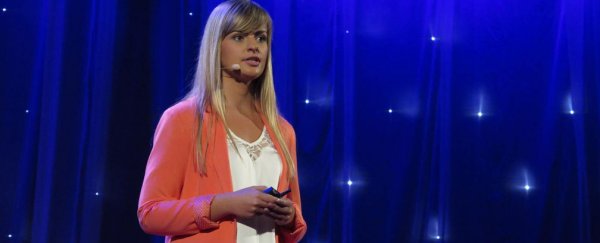Scientific research requires bucket-loads of funding in order to be done properly, with money traditionally coming from governments or corporate interests in the private sector. But one student's experience with crowd-funding her PhD research convinced her that reaching out to the public and getting them involved in the research process is just as important as raising funds.
Marcela Uliano da Silva was busy working on her PhD at the Federal University of Rio de Janeiro - investigating the genome of the 'golden mussel', an invasive, introduced bivalve species plaguing the Amazon River basin - when her supervisor pitched crowd-funding to her as a possible means of raising money to continue the research.
"Well, it's not exactly easy or straightforward to convince the general public to give me money for my PhD research by talking about genome sequencing for a mussel," writes da Silva in her TED Fellows blog post. "And plenty of people who are concerned about the environment don't have a clear understanding - or are suspicious - of genetic research. But saving the Amazon - everyone can get behind that. So it became the central theme of our crowd-funding campaign. Our job was to relate the genome sequencing to the high stakes of saving this crucial ecosystem."
The centrepiece of the crowd-funding campaign was a 5-minute video designed to explain the ecological risks the golden mussel poses to the Amazon basin. The biologist and her supervisor excruciated over simplifying the complexities of their genetic research into a viewer-friendly video tidbit, but the overall pain was worth it.
The pair's campaign video ultimately went viral on YouTube, scoring the researchers more than US$20,000 from 361 individual pledges - more than enough to continue with their research. Donor perks took a unique form, including the opportunity to have their names recorded in the golden mussel's gene sequence. Better than a campaign T-shirt, yeah?
The overall success of the crowd-funding campaign convinced da Silva that raising money from the public for research will be a crucial part of scientific endeavour in the 21st century.
"If there's one thing I've learned through this experience, it's that actually, everybody wants to participate in science," says da Silva. "That's a very good thing, and it's crucial that we give people the opportunity."
"The decisions we make in the next few decades, individually and as a group, will define the fate of this planet and of humanity," she adds. "The more of us are engaged with science, the more we can make informed decisions about how to live daily life - what to consume, how to vote and, yes, whose research to support."
